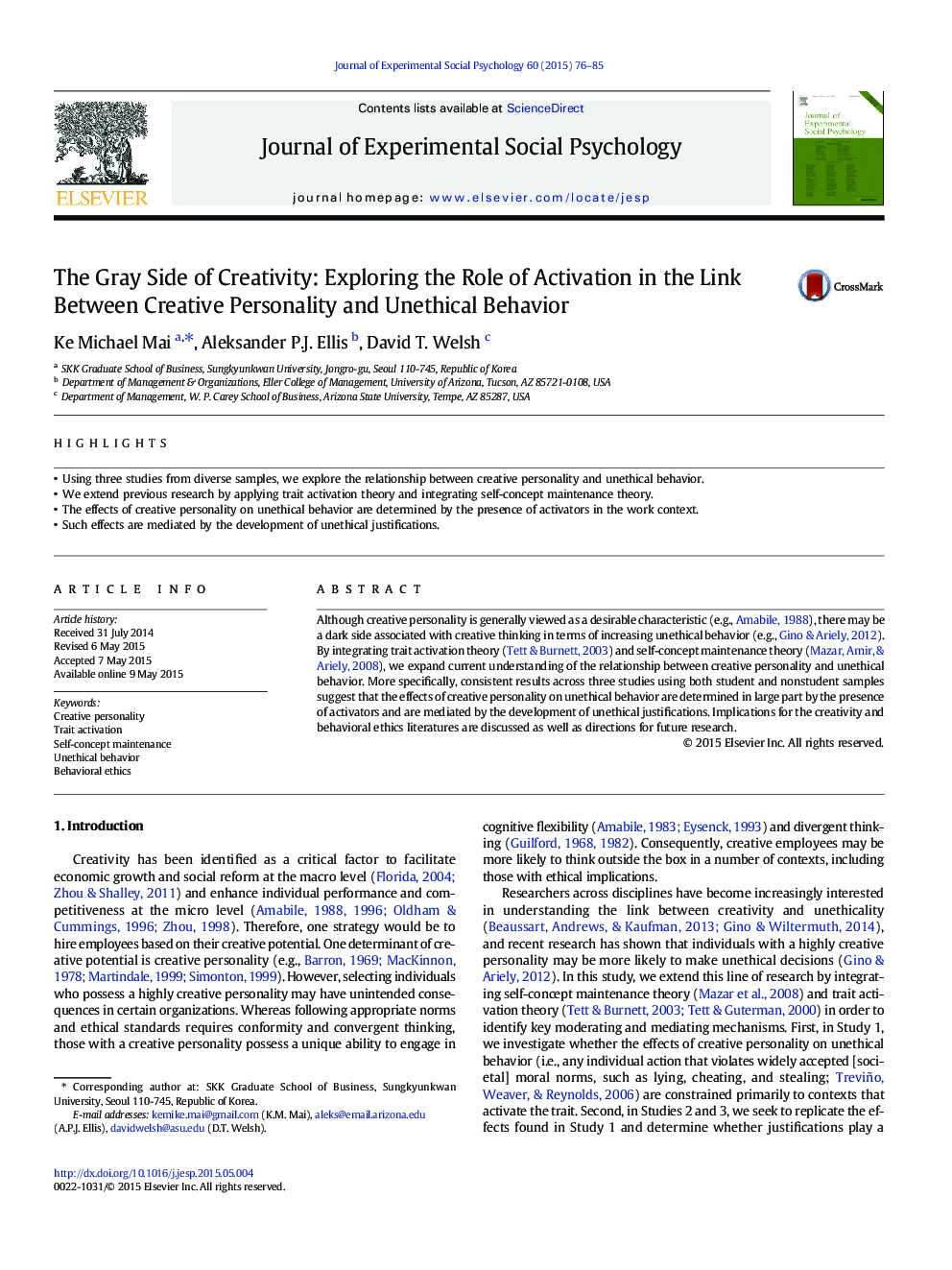| Article ID | Journal | Published Year | Pages | File Type |
|---|---|---|---|---|
| 7324589 | Journal of Experimental Social Psychology | 2015 | 10 Pages |
Abstract
Although creative personality is generally viewed as a desirable characteristic (e.g., Amabile, 1988), there may be a dark side associated with creative thinking in terms of increasing unethical behavior (e.g., Gino & Ariely, 2012). By integrating trait activation theory (Tett & Burnett, 2003) and self-concept maintenance theory (Mazar, Amir, & Ariely, 2008), we expand current understanding of the relationship between creative personality and unethical behavior. More specifically, consistent results across three studies using both student and nonstudent samples suggest that the effects of creative personality on unethical behavior are determined in large part by the presence of activators and are mediated by the development of unethical justifications. Implications for the creativity and behavioral ethics literatures are discussed as well as directions for future research.
Related Topics
Life Sciences
Neuroscience
Behavioral Neuroscience
Authors
Ke Michael Mai, Aleksander P.J. Ellis, David T. Welsh,
